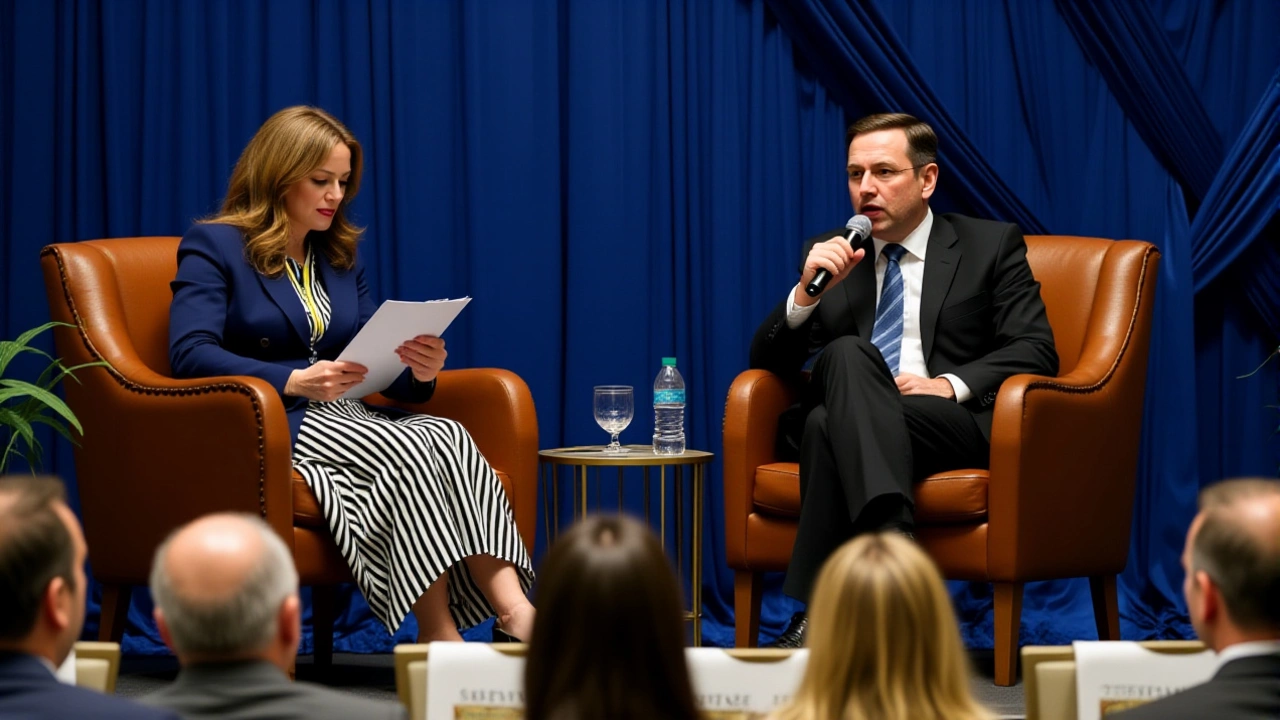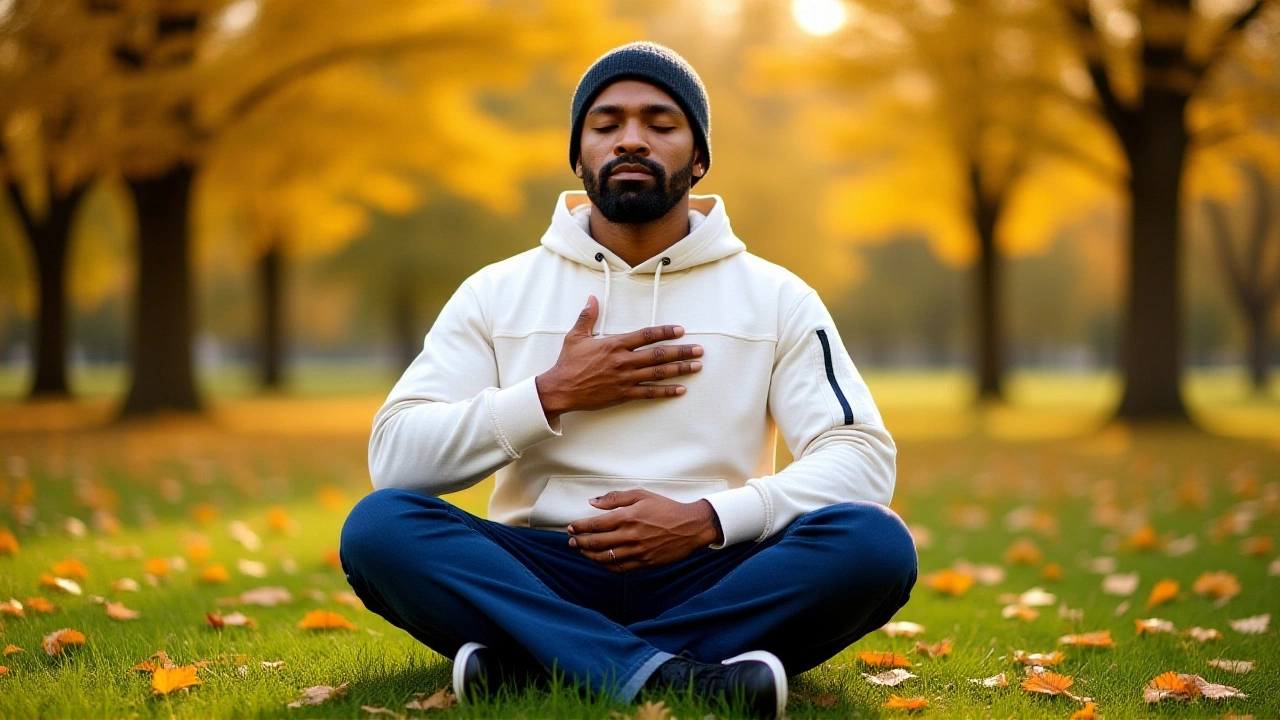When the leaves fall and the days shrink, many Wisconsinites don’t just feel the chill—they feel the weight. On November 18, 2025, ThedaCare, the Wisconsin-based healthcare system headquartered in Appleton, rolled out a sweeping mental health initiative targeting the quiet but pervasive crisis of seasonal depression. The campaign, built around expert advice from Gregg Brewer, a Mental Health Clinician with ThedaCare Behavioral Health, isn’t just another brochure. It’s a multi-platform, science-backed lifeline for a region where winter doesn’t just bring snow—it brings silence, fatigue, and a creeping sense of isolation.
Why Wisconsin Needs This Now
Wisconsin doesn’t just have long winters; it has deep winters. The state averages fewer than four hours of daylight in December, and according to CDC data, its rates of seasonal affective disorder (SAD) are 30% higher than the national average. The problem isn’t just weather—it’s culture. As Gregg Brewer pointed out in a September 19 YouTube video, "Especially in Wisconsin, drinking is a social norm. You may believe reaching for a drink can help you take the edge off or have a good time." But alcohol, he warned, is a depressant masquerading as comfort. The result? A dangerous feedback loop: darker days → lower serotonin → more drinking → deeper low.The Science Behind the Season
The body’s response to reduced sunlight isn’t subtle. Less sun means less vitamin D, which directly impacts the production of serotonin—the brain’s natural mood stabilizer. Brewer explains it plainly: "Your brain doesn’t know the difference between a cloudy November afternoon and a dark winter night. It just knows it’s not getting the light it needs." That’s why ThedaCare’s toolkit isn’t just about "feeling better." It’s about correcting biological rhythms. Their guidance includes specific, measurable steps: taking a vitamin D supplement (after consulting a doctor), using light therapy boxes for 30 minutes daily, and getting outside—even for 15 minutes—before noon, when the sun’s angle is most effective for triggering melatonin regulation.What You Can Actually Do: The 5 Non-Negotiables
Brewer and fellow clinician Natalie Hartfiel didn’t just list vague tips. They gave a blueprint. Here’s what works, based on their September 26 full-episode breakdown:- Turn off electronics 60 minutes before bed. Blue light suppresses melatonin. No exceptions.
- Walk outside daily. Even a 10-minute stroll boosts vitamin D and reduces cortisol. Nature isn’t optional—it’s medicine.
- Protect your energy. Say no to obligations that drain you. "It’s okay to put yourself first," Brewer insists.
- Connect intentionally. Text a friend. Smile at the barista. Call your sister. Human connection isn’t fluffy—it’s neurochemical.
- Don’t self-medicate. Alcohol, sugar binges, binge-watching—these aren’t coping. They’re delays.
At 7:23 in the September 26 video, Hartfiel walks viewers through a sleep schedule. At 8:30, she stresses social wellness. At 9:36, she breaks down diet—no heavy meals after 7 p.m. At 10:23, she teaches breathing techniques. The structure isn’t random. It’s clinical.

The Walk-In Clinic in Neenah: A Safety Net
What makes ThedaCare’s approach stand out is accessibility. Unlike many systems that require weeks-long waitlists, Neenah’s behavioral health walk-in clinic—where both Brewer and Hartfiel work—offers same-day appointments. "If you’re struggling, you don’t need to wait for spring," Brewer says. "Come in. We’re here." The clinic’s existence reflects a broader institutional shift: mental health isn’t a luxury for summer months. It’s a year-round necessity, especially in places where winter lasts seven months.What This Means for Families and Employers
This isn’t just personal. It’s communal. Schools in Green Bay and Madison are already seeing increased absenteeism in January. Employers in Milwaukee report higher rates of burnout claims from October to February. ThedaCare’s materials are being distributed to workplaces, churches, and senior centers across eastern Wisconsin. "We’re not just treating individuals," says a ThedaCare spokesperson. "We’re trying to change the culture around mental health in winter. It’s not weakness to ask for help. It’s wisdom."
What’s Next
ThedaCare plans to expand the campaign into 2026 with mobile mental health units visiting rural communities in Outagamie and Winnebago counties. They’re also partnering with local libraries to host monthly "Light & Talk" sessions—free gatherings with light therapy stations and trained peer counselors. The goal? To make mental wellness as routine as checking the weather.Frequently Asked Questions
How do I know if I have seasonal affective disorder and not just the winter blues?
If your low mood lasts more than two weeks, interferes with work or relationships, and follows the same pattern each winter—especially with symptoms like oversleeping, carb cravings, or social withdrawal—you may have SAD. ThedaCare’s clinicians note that SAD isn’t just feeling sad; it’s a clinical condition tied to disrupted circadian rhythms and serotonin deficiency. A simple screening at your primary care provider or the Neenah walk-in clinic can confirm it.
Is light therapy really effective, or is it just hype?
Yes, it’s backed by over 30 years of research. A 2023 meta-analysis in the Journal of Affective Disorders found that 60% of SAD patients saw significant improvement with 30 minutes of 10,000-lux light therapy daily. ThedaCare recommends devices that emit white light without UV rays, used within two hours of waking. It’s not a cure, but for many, it’s the difference between surviving winter and thriving through it.
Why does ThedaCare focus so much on saying no and setting boundaries?
Winter in Wisconsin comes with a flood of social demands: holiday parties, family visits, church events, work gatherings. But for someone with SAD, each event is a drain. Brewer calls it "energy accounting." You can’t refill your tank if you’re constantly spending it. Saying no isn’t selfish—it’s survival. The clinic trains patients to use phrases like, "I’d love to, but I’m conserving my energy this month," which reduces guilt while protecting mental health.
Can I just take vitamin D supplements instead of going outside?
Supplements help, but they’re not a full replacement. Sunlight triggers not just vitamin D production but also the release of endorphins and regulates your internal clock. A 2024 University of Wisconsin study showed that people who combined vitamin D with 20 minutes of outdoor exposure daily improved their mood scores 47% more than those who only took supplements. Nature isn’t just a backdrop—it’s an active ingredient.
What if I can’t afford light therapy equipment or supplements?
ThedaCare provides free loaner light boxes at their Neenah clinic and partners with local pharmacies to offer discounted vitamin D. Many public libraries in eastern Wisconsin now have light therapy stations open during winter months. And the simplest fix? Sit by a south-facing window for 20 minutes after breakfast. No cost. No equipment. Just sunlight.
Is this campaign only for people with diagnosed mental health conditions?
Absolutely not. ThedaCare designed this for everyone. One in three Wisconsinites experience noticeable seasonal mood shifts. You don’t need a diagnosis to benefit from better sleep, more movement, or deeper connections. The campaign’s tagline—"Never suffer in silence"—is meant for the person who just feels "off" this winter. You’re not alone. Help is here.
